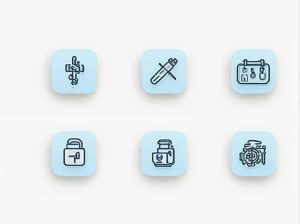Classroom misbehavior can be challenging for teachers but instead of reacting with punishment alone asking the right questions can help address the root cause. By engaging students in meaningful conversations educators can guide them toward self-reflection responsibility and improved behavior.
This topic provides a list of effective questions to ask students who misbehave along with strategies to encourage positive behavioral changes.
1. Understanding the Reason Behind Misbehavior
Before addressing misbehavior it’s important to understand why the student is acting out. These questions can help identify underlying causes:
Q: What happened before you started behaving this way?
This question helps uncover triggers that led to misbehavior such as frustration peer conflict or personal issues.
Q: How were you feeling at that moment?
Students may act out due to stress boredom anger or confusion. Understanding their emotions can help teachers provide better support.
Q: Did something upset you today?
Misbehavior can sometimes be a reaction to problems at home peer pressure or academic struggles.
Q: Do you think your actions were appropriate? Why or why not?
Encourages students to reflect on their behavior and understand its consequences.
Q: What would you do differently if you were in the same situation again?
Promotes self-awareness and problem-solving skills.
2. Encouraging Responsibility and Accountability
Helping students take responsibility for their actions is crucial for behavior improvement. These questions guide them toward accountability:
Q: How do you think your behavior affected others in the class?
Encourages empathy and awareness of how actions impact peers and teachers.
Q: What do you think should happen now?
Gives students a chance to suggest fair consequences and take ownership of their behavior.
Q: If you were the teacher how would you handle this situation?
Encourages perspective-taking and problem-solving skills.
Q: What do you need to do to fix this situation?
Focuses on solutions rather than just punishment encouraging a proactive mindset.
Q: How can I help you avoid this kind of behavior in the future?
Shows that teachers are supportive rather than just authoritative figures.
3. Helping Students Develop Better Coping Strategies
Some students misbehave because they lack the skills to handle frustration stress or conflicts. These questions help them develop better coping mechanisms:
Q: What could you have done differently to handle your frustration?
Encourages students to think of alternative ways to respond to difficult situations.
Q: What are some ways you can express your feelings without disrupting the class?
Teaches students healthy emotional expression techniques.
Q: Can you think of a time when you handled a similar situation well? What did you do differently?
Helps students recognize their strengths and learn from past experiences.
Q: Who can you talk to when you’re feeling upset or frustrated?
Encourages students to seek help rather than act out.
Q: Would taking a short break or using a calming technique help you next time?
Introduces self-regulation strategies like deep breathing stretching or journaling.
4. Strengthening Teacher-Student Relationships
Building a positive relationship with students can prevent misbehavior. These questions help create a connection and show students they are valued:
Q: Do you feel heard and respected in this class?
Helps teachers assess classroom dynamics and make necessary adjustments.
Q: What do you enjoy most about being in this class?
Encourages positive engagement and motivation.
Q: Is there anything I can do to make learning more interesting for you?
Shows students that their opinions matter and helps improve classroom engagement.
Q: Do you feel comfortable talking to me about your concerns?
Builds trust and opens communication between students and teachers.
Q: How can we work together to make this classroom a better place for everyone?
Encourages collaboration and shared responsibility for a positive learning environment.
5. Encouraging Future Positive Behavior
Once students understand their misbehavior and take responsibility they need guidance on how to improve. These questions help set goals for better behavior:
Q: What is one small step you can take to improve your behavior?
Encourages students to set realistic and achievable goals.
Q: How can I support you in making better choices?
Shows students that teachers are allies in their growth.
Q: What motivates you to do well in school?
Helps identify positive reinforcements that can encourage better behavior.
Q: What are your personal goals for this semester?
Links behavior improvement with long-term success.
Q: How will you hold yourself accountable for your behavior in the future?
Encourages students to take ownership of their actions and self-monitor their behavior.
6. Common Mistakes Teachers Should Avoid When Addressing Misbehavior
When asking students about their behavior it’s important to approach the conversation in a supportive way. Here are some common mistakes to avoid:
A. Using Accusatory Language
Instead of saying “Why do you always misbehave?” try “Can you help me understand what happened?”
B. Interrupting or Not Listening
Let students express themselves fully before responding.
C. Only Focusing on Punishment
Instead of only giving consequences use the opportunity to teach better behavior.
D. Ignoring Underlying Issues
If a student frequently misbehaves investigate possible personal or academic struggles.
E. Making It a Public Confrontation
Talk to the student privately whenever possible to avoid embarrassment.
7. The Importance of a Positive Approach
Instead of seeing misbehavior as defiance view it as an opportunity for growth. Asking thoughtful questions helps students reflect take responsibility and develop better habits.
By maintaining a calm and understanding approach teachers can create a more respectful and cooperative classroom environment where students feel supported rather than punished.
Misbehavior in the classroom is inevitable but how teachers address it makes a big difference. Instead of reacting with frustration asking the right questions encourages students to reflect take responsibility and improve.
By using thoughtful solution-focused questions educators can help students develop better coping strategies build stronger teacher-student relationships and create a positive learning environment for everyone.



